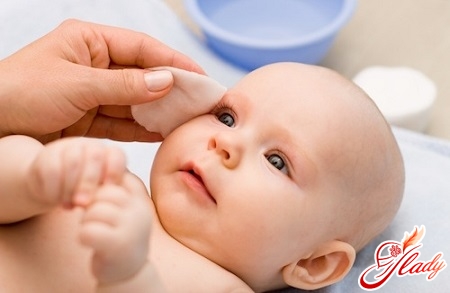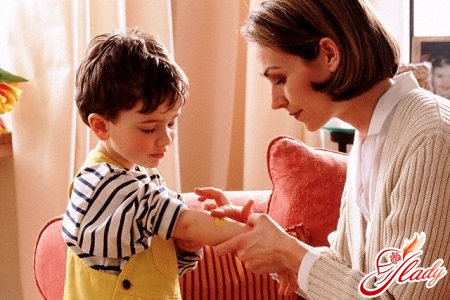 Is your baby already 5-6 months old?Congratulations, the difficult time characterized by tummy pains is already behind us. However, parents are unlikely to be able to relax, as an equally difficult stage is approaching – the stage of teething. And when a child is teething, there are also plenty of problems. Although, of course, 6 months is a very, very conditional period. In fact, the baby's first tooth can appear at three or four months, and sometimes at 8-10 months or even a year. All these variations are normal, so parents should not worry. In any case, in order to calm down, parents can always consult a dentist. The same is true for the teething process itself – it is strictly individual in each specific case. The reaction to teething in children can be very different - in some cases, the child experiences mild discomfort, in others - the child has a high body temperature, completely loses appetite, indigestion appears, signs of an acute respiratory disease may appear, the child becomes restless, sleeps poorly and cries. And in some cases, the child's teeth erupt absolutely painlessly - parents quite by accident discover an already erupted tooth. By the way, about late teething. As has already been said - each child has his own individual period of teething. But, nevertheless, most parents begin to panic very much if the child's first tooth has not appeared by 6 - 7 months. There are a huge number of various horror stories about late teething - supposedly the child's mental and physical development also suffers, and the teeth will be much weaker and more susceptible to caries than those of those children whose first teeth erupted on time. However, doctors - pediatricians and pediatric dentists are sure that all these statements have absolutely no basis. Moreover, numerous observations show that at a later age, teeth erupt much more easily than at an early age. And the teeth themselves are subject to caries much less often than those of those children whose teeth erupted too early.
Is your baby already 5-6 months old?Congratulations, the difficult time characterized by tummy pains is already behind us. However, parents are unlikely to be able to relax, as an equally difficult stage is approaching – the stage of teething. And when a child is teething, there are also plenty of problems. Although, of course, 6 months is a very, very conditional period. In fact, the baby's first tooth can appear at three or four months, and sometimes at 8-10 months or even a year. All these variations are normal, so parents should not worry. In any case, in order to calm down, parents can always consult a dentist. The same is true for the teething process itself – it is strictly individual in each specific case. The reaction to teething in children can be very different - in some cases, the child experiences mild discomfort, in others - the child has a high body temperature, completely loses appetite, indigestion appears, signs of an acute respiratory disease may appear, the child becomes restless, sleeps poorly and cries. And in some cases, the child's teeth erupt absolutely painlessly - parents quite by accident discover an already erupted tooth. By the way, about late teething. As has already been said - each child has his own individual period of teething. But, nevertheless, most parents begin to panic very much if the child's first tooth has not appeared by 6 - 7 months. There are a huge number of various horror stories about late teething - supposedly the child's mental and physical development also suffers, and the teeth will be much weaker and more susceptible to caries than those of those children whose first teeth erupted on time. However, doctors - pediatricians and pediatric dentists are sure that all these statements have absolutely no basis. Moreover, numerous observations show that at a later age, teeth erupt much more easily than at an early age. And the teeth themselves are subject to caries much less often than those of those children whose teeth erupted too early.
Signs of teething
Despite the fact that in most cases everyoneParents are well aware of the signs of teething, but when it comes to practice, adults get confused and do not always realize what is happening. And in some cases, a child does not have typical teething symptoms at all, or they are not so clearly expressed. How can you determine that at this moment the child is teething? After all, parents are often quite capable of easing this difficult period for the baby and significantly reducing the discomfort in the gum area. So, parents can suspect that their baby is teething if they notice symptoms such as:
- Increased salivation is observed approximately in70% of all cases of teething. Someone's salivation is stronger, almost uninterrupted, and someone's gain is so insignificant that it can go unnoticed.
- Itching of the gums in the crumbs. The degree of its intensity is also very individual, but with a certain amount of observation, the mother will notice this. The child will constantly pull something into his mouth, maybe even bite or gnaw his mother's breast. By the way, if your baby tries to bite you, do not scold him for it - the kid acts extremely intuitively, without any malicious intent.

What problems can lie in wait?
As a rule, most children are quiteeasily and easily tolerate teething. However, in some cases this process can be quite painful, with some complications. Parents should be aware of these complications and be prepared for them. Otherwise, they will not be able to provide the baby with the necessary help. So:
- Increased body temperature
When babies are teething, it is commonthe body temperature rises. Moreover, it can vary greatly - from subfebrile to very high (39 - 39.5). In any case, parents should call a doctor and consult. Before the doctor arrives, the temperature should be brought down only if it exceeds 38.5 degrees. For these purposes, you can use children's drugs containing paracetamol.
- Impairment of appetite
Due to the deterioration of the general condition whenchildren are teething, the child's appetite may significantly worsen, and sometimes disappear altogether. If this condition lasts longer than a day, parents should also seek help from a doctor - he will examine the baby and determine the exact cause of the loss of appetite.
- Indigestion
Very often during teethingthe child begins to have diarrhea. It is generally accepted that diarrhea is caused by teething, however, diarrhea is only a consequence of the fact that most often during this period the child drinks a very large amount of liquid, which, in turn, significantly dilutes the stool. In addition, during this period the child experiences severe itching, to soothe which the child pulls into his mouth everything that comes to hand. And on these objects, unfortunately, various pathogenic microflora often live, which leads to intestinal infections. Therefore, the diarrhea that has appeared should in no case be attributed to teething, because in the absence of appropriate measures, rapid dehydration of the body and a significant deterioration in the general condition of the child are possible.
- The onset of a cold, a cough
Sometimes during teething in a childa cough, runny nose, and red throat appear. Strictly speaking, the same thing happens here - during teething, the child's immune system is significantly weakened, so viruses penetrate the child's body very easily.
How to help the baby in this period?
Of course, during this period parents canslightly alleviate the condition of your baby. However, remember that only a doctor should make any serious decisions. However, it is quite possible to reduce a high body temperature or relieve itching on your own. In order to relieve itching of the gums, doctors recommend treating them with gels specially designed for this purpose. Most often, Russian pediatricians prefer gels such as Kalgel and Solcoseryl. The first drug relieves itching quite quickly, but its duration of action is very short - no more than 30 minutes. Solcoseryl acts much longer - about 4 hours. However, you cannot use the drugs too often - the interval between uses should be at least three hours. And, of course, do not forget about such a useful detail as special "teethers" - rubber toys with pimples, filled with water. They greatly relieve the condition, especially if the teethers are kept in the freezer for a few minutes beforehand. Of course, during this period it will be quite difficult for you, but it will take very little time and your baby will please you with strong and healthy teeth. And you will be able to tell other young parents with knowledge of the matter how children's teeth are cut. We recommend reading:









